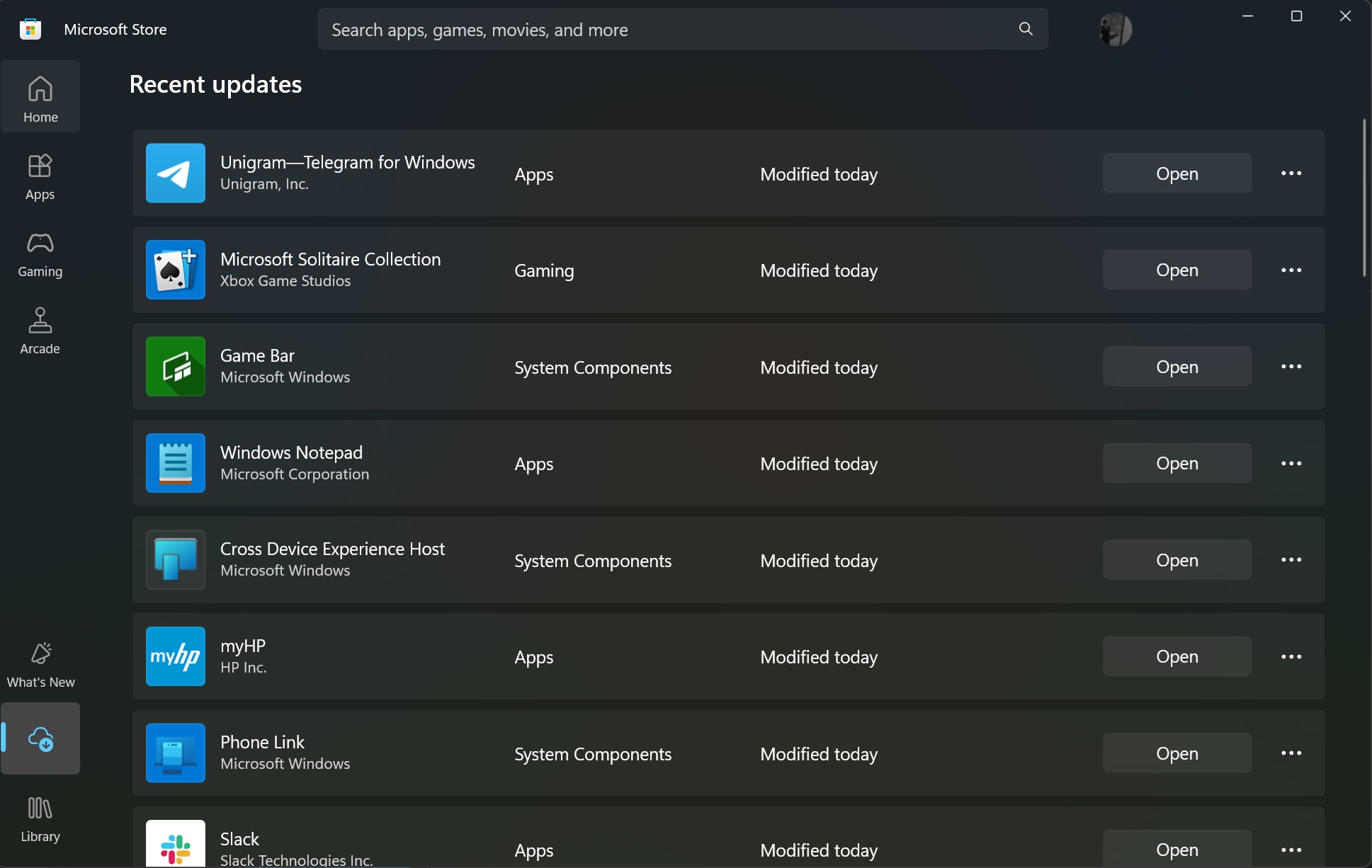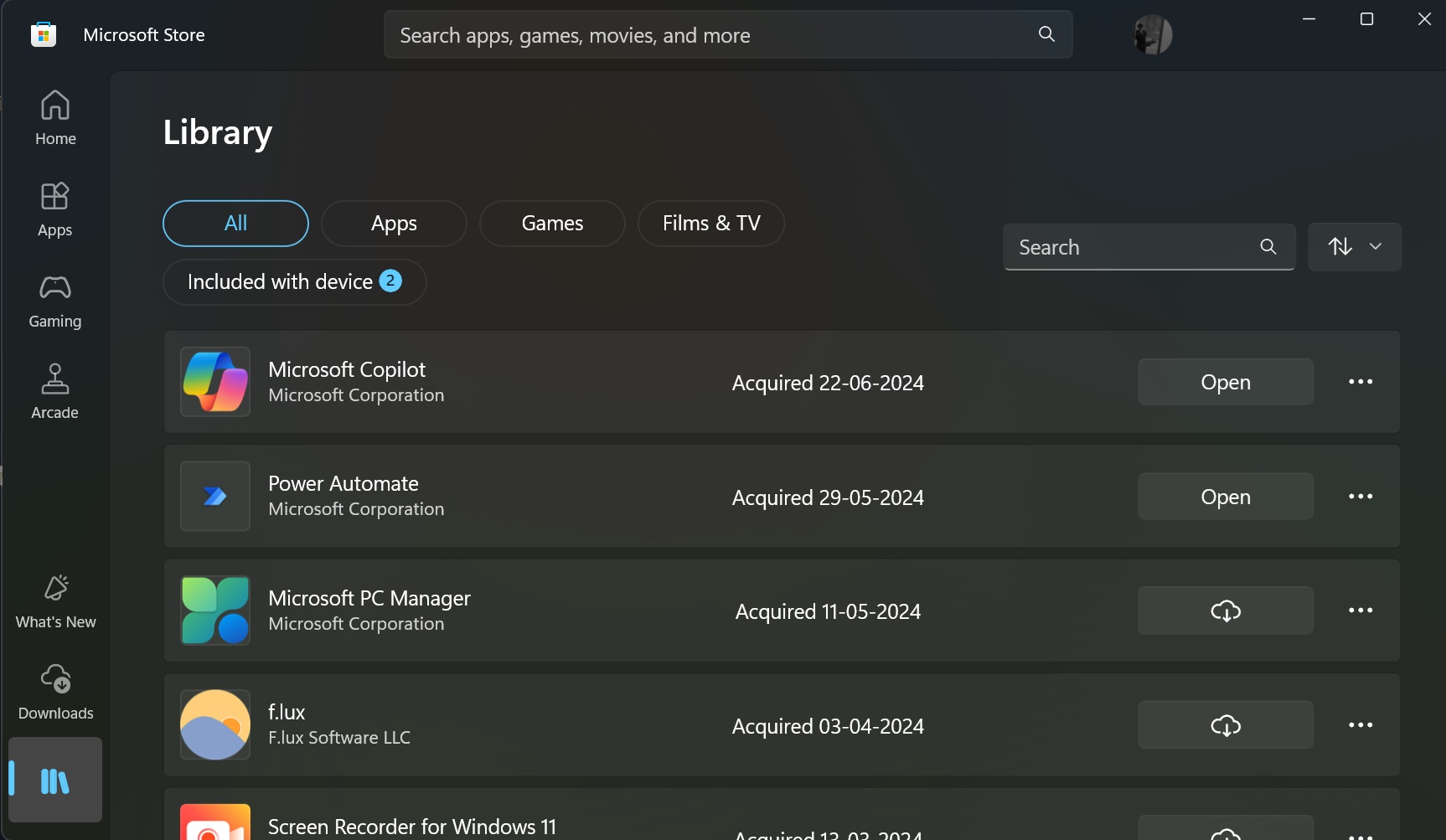Microsoft Store is one of the apps that could greatly benefit from Windows 11’s proposed performance boost for modern apps. While the performance boost is still in the works as Microsoft is slowly migrating the Windows Store to a .NET 9 release, a recent update has split the “Downloads” section into “Downloads” and “Library.”
Let’s first talk about the Store performance improvements.
.NET 9 is a new release of .NET Framework, and it comes with significant performance boosts for large and complex apps, such as Microsoft Store. Microsoft is working on updating the Windows 11 Store to use .NET (version 9) and Native AOT (Ahead-of-Time compilation).
I previously talked about Native AOT support and how it could significantly help Windows App SDK-based apps like Photos and Phone Link. Turns out it’s also going to help UWP apps, such as the Microsoft Store.
In a blog post, Microsoft discussed plans to update the Store app to use .NET 9 to reduce its size and improve launch time with NativeAOT.
But how is switching to .NET 9 and Native AOT going to make the Store app run more efficiently? Per Microsoft and my understanding of the developer documentation, Native AOT compiles the app’s code directly.
This basically means that when you open the Store, it starts faster because the CPU can run the instructions directly. It doesn’t need to compile or interpret them all over again.
As a result, the store would launch faster. You’ll also notice that its pages load faster, but it could take a while before being implemented into the Microsoft Store.
Microsoft Store is being slowly migrated to .NET 9 and NativeAOT
First spotted by Windows Latest, in a post on X, a senior software engineer working on the Microsoft Store confirmed that Microsoft is “currently working on migrating the Microsoft Store to .NET 9 and NativeAOT, and we’re leveraging all this new tooling for that. That allows us to still make incremental progress for WinUI 3 and reduce risk in the migration.”
Microsoft is updating the Store app in steps.
First, Microsoft is updating the Store’s tech to .NET 9 and Native AOT. Later, the Store’s user interface would be updated to use more of WinUI 3. Since these changes are being implemented gradually, there’s less chance of big problems.
It’s pretty interesting to see how Microsoft Store uses .NET 9 and Native AOT (Ahead-of-Time compilation). This could be a game changer for Windows Store, which is often slow and buggy, especially when downloading large apps or games.
New Downloads and Library pages in the Windows 11 Store
Microsoft Store was recently updated with better “Downloads” and “Library” management.

As shown in the above screenshots, the Store now has a new page for “Downloads” and “Library”.

While the “Downloads” page allows you to manage updates for installed apps or games or view the release notes if available, the Library section highlights apps or games owned by you.
It also has a search bar, so you can easily find an app that you previously installed on one of your devices.
The split-up has also made the Store app more easy to use, and the updated version is now available for everyone outside the Windows Insider Program.
As for the .NET 9-based Store, it will begin rolling out to testers soon.
The post Microsoft Store could soon run faster on Windows 11, gets Library and Downloads section appeared first on Windows Latest
